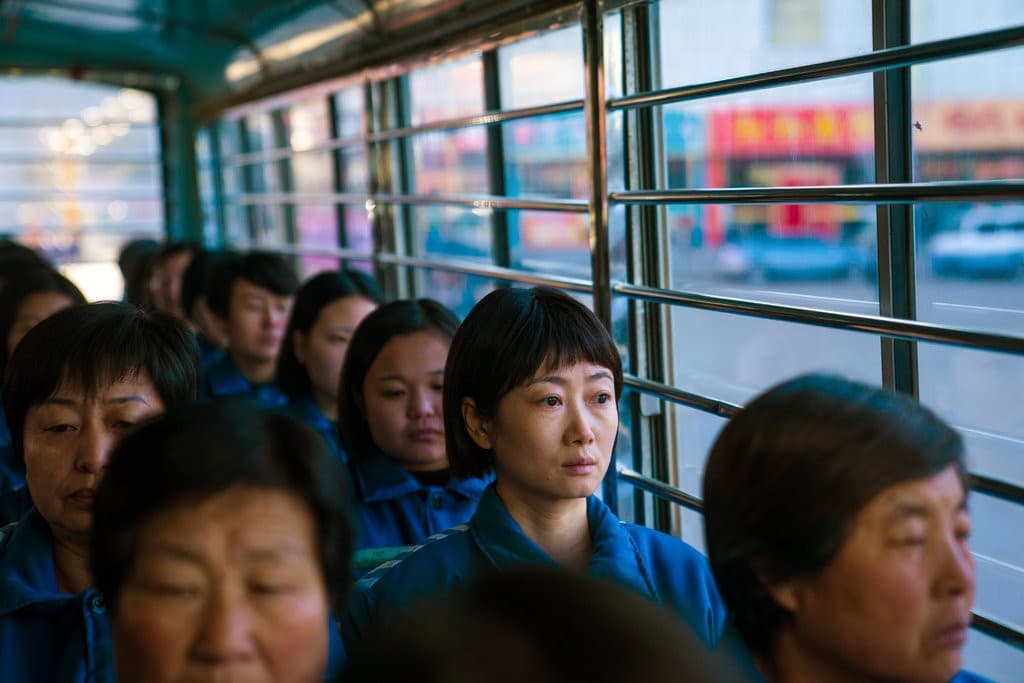Advertisement
Review
'Ash Is Purest White' Tells A Tale Of Love And Crime In A Quickly Changing China

I realize the month of March is comically early to make such a sweeping statement, but I’m also having a hard time imagining 2019 will deliver another movie heroine as stubbornly complicated and quietly commanding as Qiao, the gun moll played by Zhao Tao in writer-director Jia Zhangke’s expansive, melancholy gangster epic “Ash Is Purest White.”
This massively entertaining melodrama is deceptively direct in presentation, but a closer look reveals that even the simplest scenes contain multitudes. It’s a deeply moving and fiercely ambivalent picture about old loyalties, new beginnings and the damnable passage of time.
Our story kicks off in 2001, with Qiao strutting into a nightclub on the arm of her lover Bin (Liao Fan). He’s a rather less-than-impressive crime boss lording over northern China’s coal mining town of Datong, where the mobsters mostly sit around playing Mahjong and watching old Chow Yun-Fat movies all day. It’s a pretty paltry, low-rent empire, yet our young Qiao is enraptured — taking fervently to heart the ancient code of jianghu to which the rest of these petty hoods merely pay lip service.
She’s a literal coal miner’s daughter, talking her dad down from his drunken rants about encroaching capitalist pigs when the government announces plans to relocate workers. Meanwhile street gangs of tougher, hungrier young thugs have been attacking the complacent Datong underworld without any respect for the old ways. It is from a crew of these bloodthirsty kids that Qiao winds up rescuing her beloved Bin, and for her troubles finds herself doing five years in prison on a firearms charge.

She might as well have gone away for 50, as Qiao emerges to a China radically transformed. The country’s economic miracle has turned all the gangsters into businessmen and bureaucrats, with her old swindler pals parked in cushy desk jobs at the Chamber of Commerce. Bin’s become a bigwig at the local power plant, such a pathetic coward he hides in the office and sends his new girlfriend out to shoo away Qiao when she comes calling.
Even the landscape is unrecognizable thanks to the Three Gorges Dam Project, a mainstay of many Jia pictures going back to his 2006 “Still Life,” with the Chinese government’s massive rerouting of the Yangtze River serving as a nifty visual metaphor for his homeland’s sweeping, out-with-the-old mentality. (Sharp-eyed fans might spot some familiar shots from “Still Life,” except all the locations are now underwater.)
The film’s fiendishly funny midsection finds Qiao flat broke with no direction home, relying on her wits to con and grift her way along — primarily by playing on the vanity and assumptions of stupid men. (My favorite sequence has her walking up to random dudes at a stranger’s wedding, pretending to be the older sister of their mistresses and hitting them up for hush money.) Undaunted, she keeps trying to track down her former flame, because if Bin’s gonna brush her off like this he’s damn well gonna have to do it to her face.
Advertisement
“Ash Is Purest White” takes its title from an early conversation in which our two lovers regard a dormant volcano, discussing how cinders that burn hottest become the cleanest color. As brilliantly played by Zhao (wife and muse of the director who has appeared in all but two of his films), Qiao doesn’t quite burn so much as smolder at a very high temperature indeed, stoically enduring an endless string of slights with an ever-thickening backbone until she’s the last jianghu warrior towering over a sorry lot of misfits and screwups in what used to pass for an underworld.
Much like Jia’s 2016 triumph “Mountains May Depart,” which memorably left me ugly-crying in the Brattle’s front row, “Ash” is a good deal more overtly melodramatic than the director’s earlier, austere efforts. Some critics have blasted his pivot toward conventionally genre-focused projects as a capitulation to Western audiences, as if these pictures weren’t also about characters struggling with that very Western-ization of Chinese culture. Seems to me a case of form following content, but it is true he moves the camera around a heck of a lot more than he used to.
Borrowing Olivier Assayas’ regular cinematographer Eric Gautier, Jia bathes the screen in deep greens and rich neon lights, slowly desaturating the colors and shooting the characters from greater distances as they’re exhausted and diminished by time. There’s an exuberance to the way he embraces even the kitschiest pop artifacts, turning the Village People’s “YMCA” into an anthem of paradise lost and repurposing Sally Yeh’s swoony theme song from John Woo’s “The Killer” as a bitter serenade for a form of chivalry that probably only ever existed in the movies.
“Ash Is Purest White” spans 17 years, but as the flip-phones turn into smartphones and rusty locomotives give way to sleek bullet trains, it’s that very outlaw code — the dream of a jianghu to which Qiao so ferociously clings for comfort during these rapidly changing times — that is either her downfall or her salvation. You get to decide which.
“Ash Is Purest White” opens Friday, March 22 at the Kendall Square Cinema.
